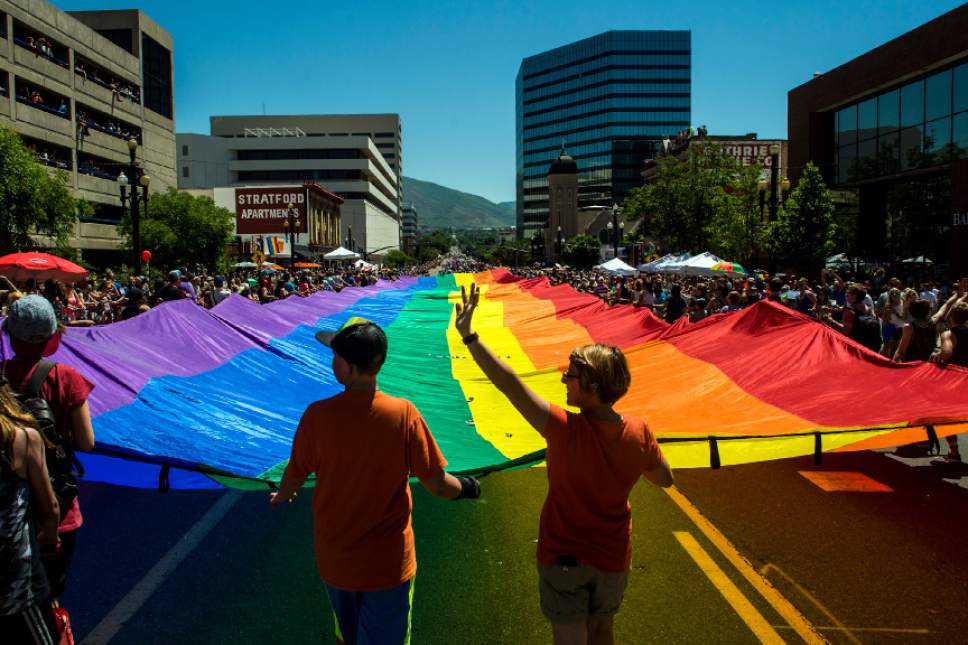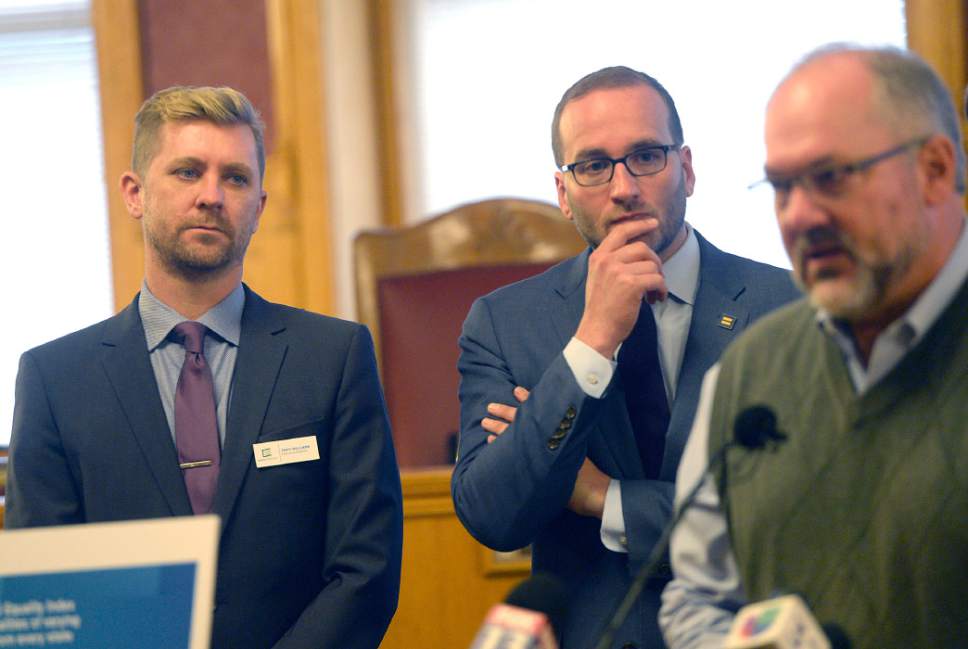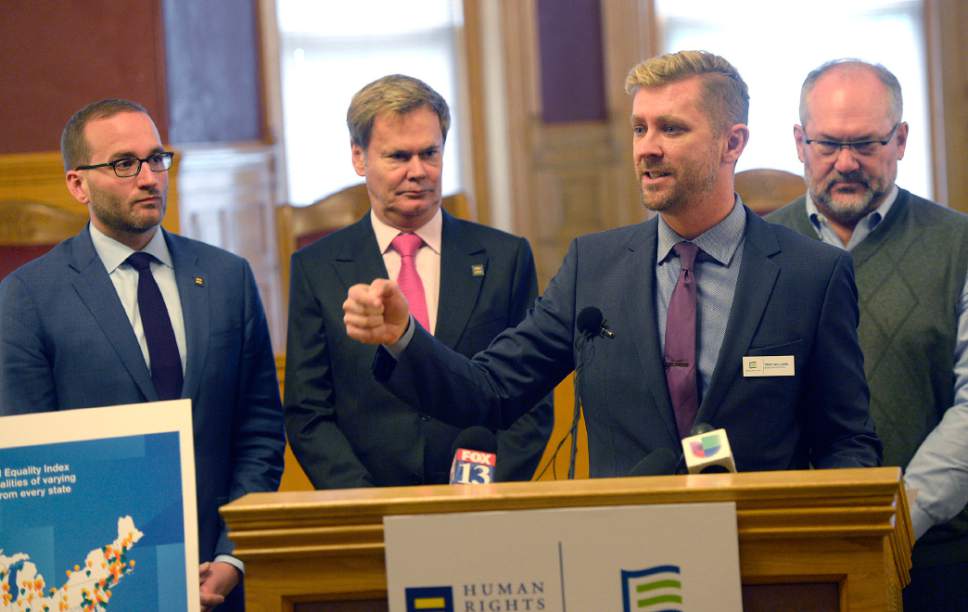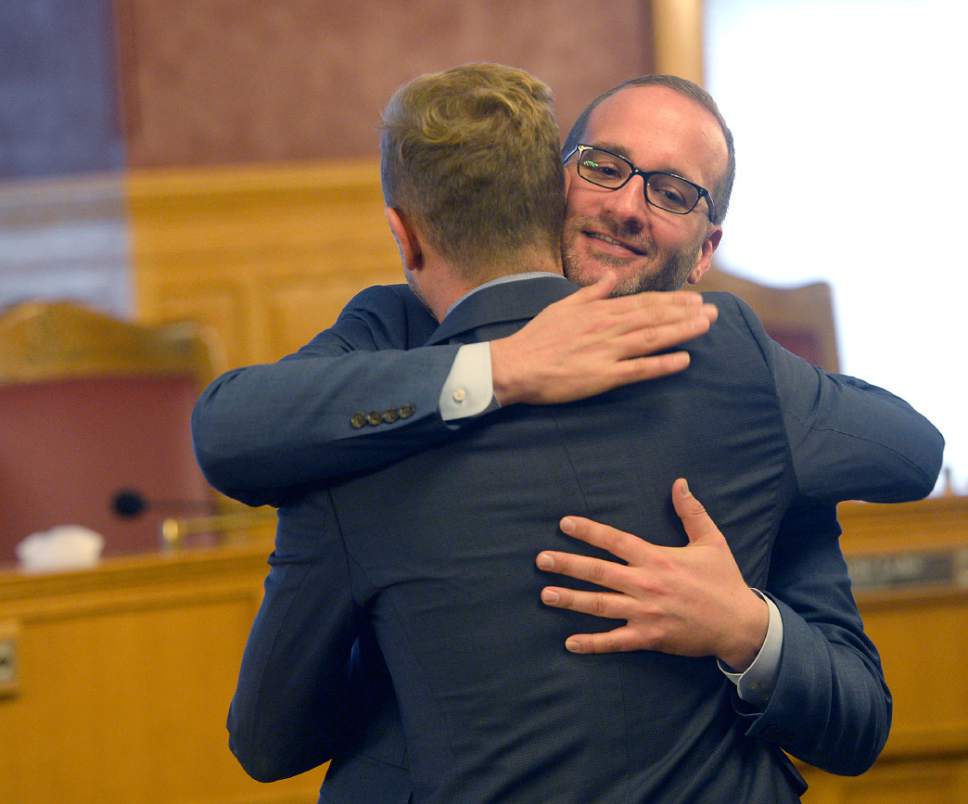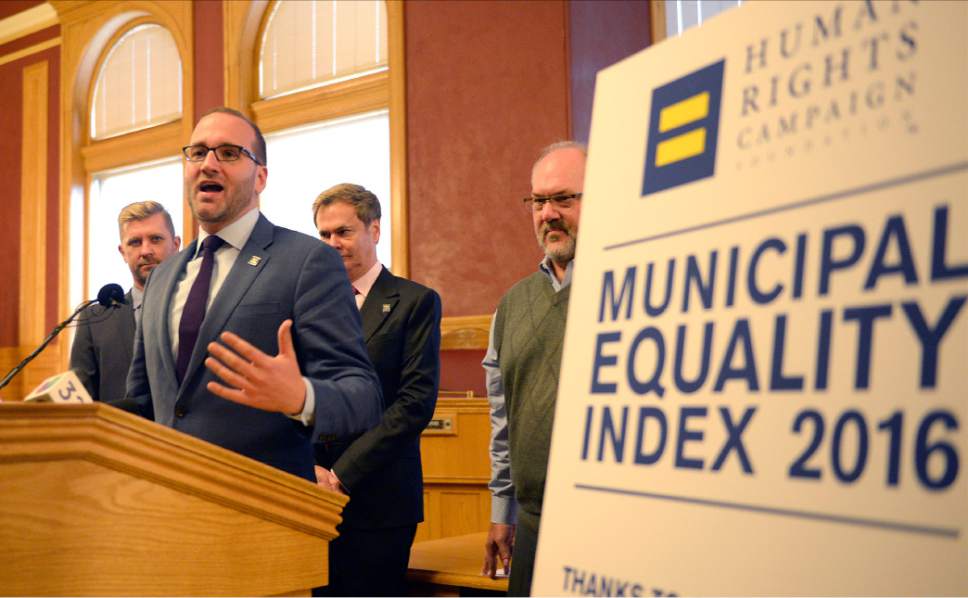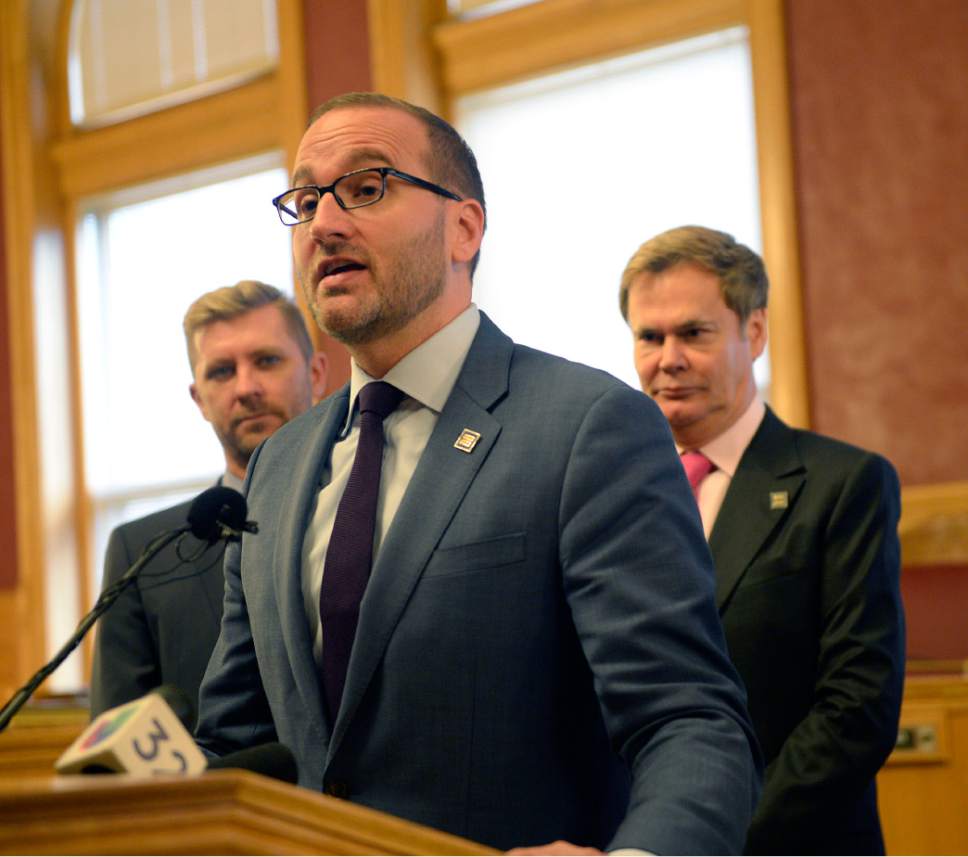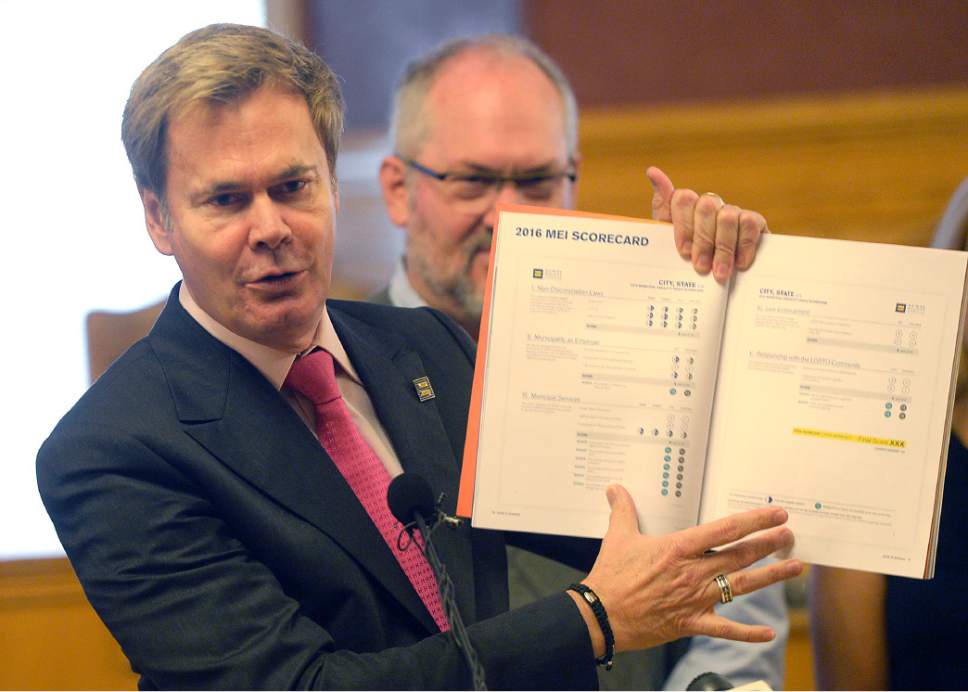This is an archived article that was published on sltrib.com in 2016, and information in the article may be outdated. It is provided only for personal research purposes and may not be reprinted.
Salt Lake City earns an above-average score among U.S. cities when judged on policies and practices that are inclusive of LGBTQ residents, a new national survey shows.
That ranking may get a boost if two city councilmen get their way and succeed in passing a public-accommodation law.
Conducted by the Human Rights Campaign, the Municipal Equality Index is the only national assessment of lesbian, gay, bisexual, transgender and queer inclusion in local law and policy.
The 2016 findings were released by HRC President Chad Griffin during a Monday news conference at Salt Lake City Hall.
The city earned and MEI score of 69, the highest of any Utah community, and a distinction earned through its status as an LGBTQ-friendly haven in the heart of a red state and the worldwide home of the socially conservative Church of Jesus Christ of Latter-day Saints.
"Salt Lake City is a peculiar city," said Stan Penfold, who in 2010 became the city's first openly gay councilman. "We are a very conservative state and yet Salt Lake City continues to be at the forefront of the LGBTQ issues, rights and concerns in this country."
Still, there's work to be done, Penfold said.
So, in 2017, he and Councilman Derek Kitchen will launch an effort to get a public-accommodation law — barring discrimination on the basis of sexual orientation or gender identity in retail stores, education institutions, recreation facilities and others — on the city's ordinance books.
The goal: Approve an ordinance that paves the way for a statewide law, Penfold said. That's what the city did in 2009, embracing a ban on LGBTQ discrimination in housing and employment that became the model for a statewide law adopted in 2015. The city and state measures passed with the blessing of the LDS Church.
The MEI report notes that cities from coast to coast often are the trailblazers for such legislative actions. Cities have done so much, in fact, that a record 506 were evaluated for the 2016 report, with 60 earning a perfect score of 100.
It's reassuring proof, Griffin contends, that, despite a continued drumbeat of discriminatory rhetoric and legislation nationwide, the LGBTQ community can and will continue to make progress toward full equality.
"We've seen cities big and small in red and blue states alike stand up for equality and give us hope,," he said.
To earn an MEI ranking, cities are evaluated on 44 criteria, including the existence of nondiscrimination laws and employment polices, city services, law enforcement and municipal leadership on equality issues. More specifically, the benchmarks considered by the assessment include whether cities offer transgender-inclusive insurance benefits, hate-crimes reporting by police and nondiscrimination requirements for companies awarded city contracts.
Salt Lake City's score got a boost from having two openly gay city councilmen (Penfold and Kitchen), a lesbian mayor (Jackie Biskupski) and for renaming a 20-block section of 900 South for slain gay-rights activist Harvey Milk.
The city also racked up points for its nondiscrimination ordinances a domestic-partnership registry, a police department with LGBTQ sensitivity-training for officers and other policies.
"We are a stronger city because of who we are," Penfold said, "and because we recognize the diversity of the people who live here."
The city's advances, Penfold and others said, have been made through sitting at the table, sometimes for years, with community stakeholders, including the predominant LDS Church, which has a checkered history with the LGBTQ community.
The Utah-based faith opposes the legalization of gay marriage, and its current policy labels gay Mormon couples as "apostates" and bars their children from religious rites until they turn 18.
In 2009 and 2015, however, church leaders backed nondiscrimination measures that protect LGBT people in housing and employment, while offering some exemptions for faith groups.
When asked about the nascent movement toward a public-accommodation proposal for Salt Lake City, a spokesman said the LDS Church had no comment at this time.
"We are continually working with the LDS Church," Penfold said. "I don't expect them to be silent [on the issue], but I expect them to be very, very engaged in the process."
Other Utah cities ranked by the MEI survey included Ogden and Provo, which each earned score of 47s. Park City's score was 38, followed by Logan, West Jordan and West Valley City, all at 35.
Orem earned the lowest Utah score at 23.
Troy Williams, executive director of Equality Utah, said his agency is working across the state to increase understanding and reduce misconceptions. That includes encouraging LGBTQ residents to be bolder and to participate in civic life.
"As we continue to see more LGBT people both run for office and win public office and serve the public, I believe so many of these fears are going to just fade away," he said. "Instead of seeing our community as adversaries, they'll begin to see us as neighbors."


